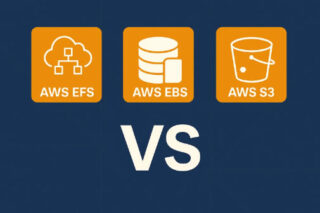Cloud hosting is one of the many uses of cloud computing technology.
Cloud computing refers to any process (i.e. hosting), system or behavior involving the cloud. On the other hand, the cloud is a computer repository or network that can be viewed remotely, where users can store and edit files and perform a wide variety of IT activities. This system uses the digital cloud as an analogy, where you can imagine storing data in it and being able to use it at any time and anywhere as long as there is an Internet connection.
Characteristics Of The Cloud
Generally, websites hosted on cloud hosting operate on clustered servers where online operations are not limited to a single server. By handling security, load balance, and hardware resources virtually, the website has access to the processing power of a number of servers that are distributed in real-time.
Cloud Hosting At Work
To give you a more in-depth understanding of what it’s all about, here are seven features of cloud computing/hosting.
1. Dynamic computing infrastructure
Cloud hosting is one of the many uses of cloud computing technology.
Cloud computing refers to any process (i.e. hosting), system or behavior involving the cloud. On the other hand, the cloud is a computer repository or network that can be viewed remotely, where users can store and edit files and perform a wide variety of IT activities. This system uses the digital cloud as an analogy, where you can imagine storing data in it and being able to use it at any time and anywhere as long as there is an Internet connection.
Characteristics Of The Cloud
Generally, websites hosted on cloud hosting operate on clustered servers where online operations are not limited to a single server. By handling security, load balance, and hardware resources virtually, the website has access to the processing power of a number of servers that are distributed in real-time.
Cloud Hosting At Work
To give you a more in-depth understanding of what it’s all about, here are seven features of cloud computing/hosting.
1. Dynamic computing infrastructure
This functionality makes it easier for the cloud to deal with evolving customer demands and requirements without the need to rework the architecture structure. Because it runs on centrally operated virtual machines, the cloud benefits from a consistent, reliable, tangible, and secure physical infrastructure, providing a high degree of availability and flexibility.
2. IT service-centric approach
Unlike conventional service-centric or system-centric models, the cloud offers the highest importance to the individual IT systems or resources it delivers. This ensures that the cloud allows customers to conveniently and efficiently access a dedicated service or application, because it is operated by a processing environment uniquely built and tailored to provide the service or software in the best and quickest way possible.
3. On demand self-service and minimally or self-managed platform
The cloud allows both business mobility and strategic efficiency, enabling users to set up and maintain their accounts and how they handle their accounts. With user-friendly interfaces and well-equipped control systems, it enables process integration and optimization for those who want limited account monitoring. This eliminates both the time taken to track and handle the account and the need for manpower to do the job.
4. Consumption-based billing
Here comes one of the main aspects that makes cloud storage cost-effective: for cloud hosting, customers only pay for what they actually use or use. It utilizes a consumer-driven, consumer-driven model that uses tools to monitor customers’ individual usage of services and bases the billing on that detail. This use can also be regulated by those looking at IT costs, as, as stated above, corporations are given power over optimization.
5. Broad Network Access
The cloud allows access to the large network of this vast web, which is further expanded by the ever-increasing means and technologies by which the site can be reached. Due to constant technical advances, the cloud can be reached not only by computers, but also by other Internet-enabled devices such as notebooks, smart phones, and tablets, among others.
6. Resource Pooling
The resources of the cloud computing service provider, including power, computation, network bandwidth, virtual computers, storage, and email facilities, are shared in such a manner that they can be used or accessed by multiple users. Such services may be distributed or diverted to other applications, based on the client’s demand.
7. Rapid Elasticity
Since cloud computing is scalable, it is easier to compute or measure modification needs for expansion or enhancement. Users and service providers can easily project new requirements for elements such as processing speed, bandwidth, data storage, and license numbers, along with an estimate of costs. This projection can also be easily adjusted based on a specified period of time (long term, short term, etc.).
Benefits of Cloud Hosting
Cloud hosting is the best type of shared hosting available on the internet. There are many advantages to using shared hosting servers. Cloud computing comprises of a network of multiple clusters or computers that share or host data on the server. Having a large number of units or hardware allows for a more reliable hosting option. There are a few advanced options to consider when choosing cloud hosting.
There are three types of cloud hosting: public, private, and hybrid. Public cloud hosting is when the hosting provider allows for data on the server to be spread across a wealth of publicly managed hardware. Private cloud hosting is when the hosting provider is responsible for or owns the hardware that stores the data on the server. Hybrid hosting is when the server comprises a mix of both public and private data sources.
Pay As You Go
With cloud hosting, gone are the days when end users need to pay for a fixed amount of server bandwidth regardless of the amount of traffic they receive. In the past, website owners paid for a dedicated server with a huge capacity. For instance, when there is an increase in the quantity of traffic coming in, this is highly beneficial. But when there is a drop in the load of the site, the bandwidth becomes underutilized. Cloud hosting provides a billing model similar to electric meters, where users only pay for the cost of servers they actually get to use. With a spike in the server load, the cost increases. But with a drop in the server load, the cost also decreases.
Flexibility and Reliability
Cloud hosting allows you to own your own virtual server without having the stress or responsibility of completely owning the physical server. This gives users a wealth of possibilities of flexibility to transform their hosting options to suit their needs. Depending on the quality of the account, users will be able to upload any software or database onto their account.
If a part of the server fails for any reason, the user’s account will be transferred to another cluster in order to keep it running. Some premium accounts offer services such as disaster recovery.
Similarly, private cloud hosting can improve reliability because, instead of having to focus on your data and backing it up, you can now just store everything on a private cloud hosting service and concentrate more on your business.
Scalability
Crashing servers are one of the biggest problems hosting clients dread. Cloud hosting virtually eliminates these cases, as they use load balancing technologies and constantly have hardware upgrades. In the event that one server crashes, there will always be another server to continue the work. Cloud hosting is rarely experienced with cloud hosting.
Cheaper
Yes, you read it right. Although cloud hosting is sort of a new technology, it is in fact a cheaper choice for many websites with heavy traffic. The problem is, when you are running a huge website the traditional way, you need to reserve a lot of excessive bandwidth and computing power for sudden traffic surges (I wrote a detailed article on how to calculate the safety factor of bandwidth usage, but that’s another topic); with cloud hosting, you simply rent the computing power from the cloud provider. Whenever you need more server resources, you simply ask for more (pay-per-use model).
Environment-friendly
Another advantage of hosting in the cloud (though it seems unlikely) is that it is environmentally friendly. Think about it – when you go cloud, you pay as you go – this equals less computer hardware and computing power. It’s not something like green hosting, but still, going cloud in turn reduces the consumption of natural resources (such as rare earth and electricity) and, thus, less carbon footprint.
Storage
Cloud hosting uses a genius method of storing data on various computers that can then be easily accessible on a server. Cloud storage providers use high computing technology and complex systems to guarantee user satisfaction. Most hosting servers provide a data back up service and copy data to multiple clusters in case something were to happen to any part of the server.
Expanding Usage and Unlimited Bandwidth
More servers can easily be added in order to provide more features, bandwidth, disk space, and effective management. Users can limit or expand their server consumption at any time and only have to pay for what they use. It is almost like a pay as you go type system. Many hosting providers claim to give unlimited disk space. This is not entirely true, but an enormous amount of disk space is readily available with a cloud hosting option and most users will not exceed their quota. A quota can be easily enlarged if need be, as extra servers can be added to the network and effectively expand the cloud. The amount and speed of bandwidth will change according to how much data is loaded onto a disk space. The speed of bandwidth also depends on the hosting provider. Some providers offer better services than others do.
Operating System and Features
Cloud servers can support a wealth of different applications that can be easily uploaded onto the server. Some of these include DB2, Outlook, Linux, Oracle, Solaris, Web Logic and all Windows programs. Web hosting companies will support either Windows or Linux, depending on what users wish to use.
Improve Reliability
Private cloud hosting can improve reliability because, instead of having to focus on your data and backing it up, you can now just store everything on a private cloud hosting service and concentrate more on your business.
More Security
Because it is a private cloud hosting service, you don’t have to worry about anyone taking your data. No one can hack into this and all of your data will be safe and secure.
Shared Web Hosting in the Cloud
You can also share web hosting on your private cloud. The most basic form of this is in shared web hosting packages. Although this is the most basic type of web hosting, the cloud does a great job of expanding on it by adding a better level of uptime and by increasing the resources.
VPS Hosting in the Cloud
There is also a VPS hosting facility. It will make it easier for servers to be even more closely linked to the resources provided. This also helps you to extend the options available with only a few clicks of a button.
With the many benefits of private cloud hosting, why don’t you want to use it? It’s both cheap and easy to use, and it will take a load off your mind because there’s just a slight risk of it actually coming down one of the other hard drives in the cloud. Most companies, as well as individuals, would benefit immensely from a private cloud computing company to keep all their data secure and stable in storage.



